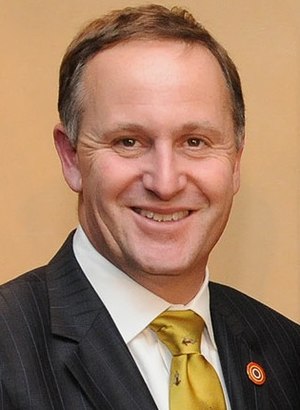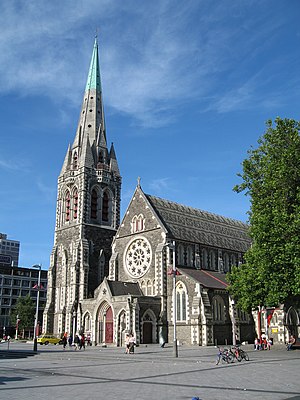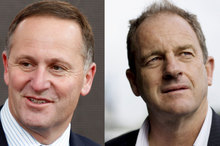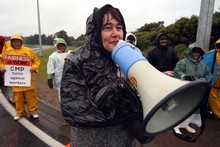Not Again: Labour politicians have
turned right on their Reds before - most recently in 1984. What left-wing trade
unionist and commentator, Matt McCarten, seems to have forgotten is that in a
political environment dominated by the Right, the "centre" keeps shifting - and
not to the Left!
IT’S NOT OFTEN
that I find myself in disagreement with Matt McCarten. For the best part of a
quarter-century our “take” on the political scene has been distinguished more by
the views we shared than the opinions which caused our analyses to diverge. On
the question of Labour’s shift to the right, however, I find myself at
loggerheads with
Matt’s
position.
Essentially, Matt’s line is
that Labour long ago ceased to be a real left-wing party, and so it is both more
honest, ideologically, and much more effective, politically, for Labour to seek
the votes of those in the centre of the New Zealand political spectrum, leaving
those on the Left to those genuinely left-wing parties, Mana and the
Greens.
Under our MMP electoral system,
Matt argues, Labour is most unlikely ever to find itself in a position to govern
alone. Like
John Key’s National Party, it will be forced to seek the support of
parties located at a much greater distance from the centre than itself.
Providing these parties keep their nerve at the point of negotiating confidence
and supply agreements, says Matt, the overall programme of any new Labour-led
coalition government will be considerably more left-wing than the manifesto
Labour, on its own, presented to the electorate.
But, is Matt justified in
assuming that Labour’s coalition partners will be either inclined, or permitted,
to keep their nerve and negotiate an agreement at significant odds with that of
the dominant coalition partner?
If, as Matt concedes, Labour’s
political trajectory is now firmly set; from Goff’s hesitant (and personally
discordant) leftism, to Shearer’s eager embrace of the policies associated with
the conservative
Finnish prime minister,
Esko Aho; then a 2014 “win” by Labour
will be attributed (both by itself and the right-wing news media) to the
electorate’s endorsement of the very same policies. In this context, the ability
of the smaller left-wing parties to “force” Labour to embrace radical policy
initiatives – policies already “rejected” by a clear majority of voters – will
be extremely limited.
The other problem with Matt’s
analysis is that it makes no allowance for the impact a right-wing Labour Party
is bound to have on the national (with a small “n”) political environment. By
reinforcing the Right’s overall ideological dominance, Labour will make it that
much harder for all political parties to evince radical left-wing ideas.
This is likely to be especially
true of the Greens, who, having broken through the 10 percent threshold in 2011,
will be especially reluctant to revert, at least in the public’s imagination, to
once again being a radical party of the political fringe. In other words, if
Labour shifts to the Right, the Greens are much more likely to shadow them than
they are to increase the ideological distance between them. New Zealand leftists
should not forget that the Green’s dramatically improved their electoral
position in 2011 by tacking to the Right – not the Left.
Matt’s thesis would be much
stronger if the
Mana Party could be relied upon to motivate and mobilise a
significant proportion of the 2011 “Non-Vote” of close to
three-quarters-of-a-million New Zealanders. But building a truly mass-
party of
the Left is almost certainly beyond the intellectual, organisational and
financial resources of Mana. And even if, by some political miracle,
Hone
Harawira proved equal to the task of creating a massive new block of radicalised
voters from harassed and impoverished workers and beneficiaries, the change his
success would bring to the national political environment would, almost
certainly, see Labour tacking back towards the Left. In the circumstances of an
electoral uprising of beneficiaries and the working poor, the political centre
would no longer be a safe place for Labour to be found.
Read more:
http://bowalleyroad.blogspot.co.nz/2012/03/saying-no-to-labours-right-turn-reply.html?m=1





























